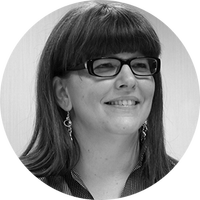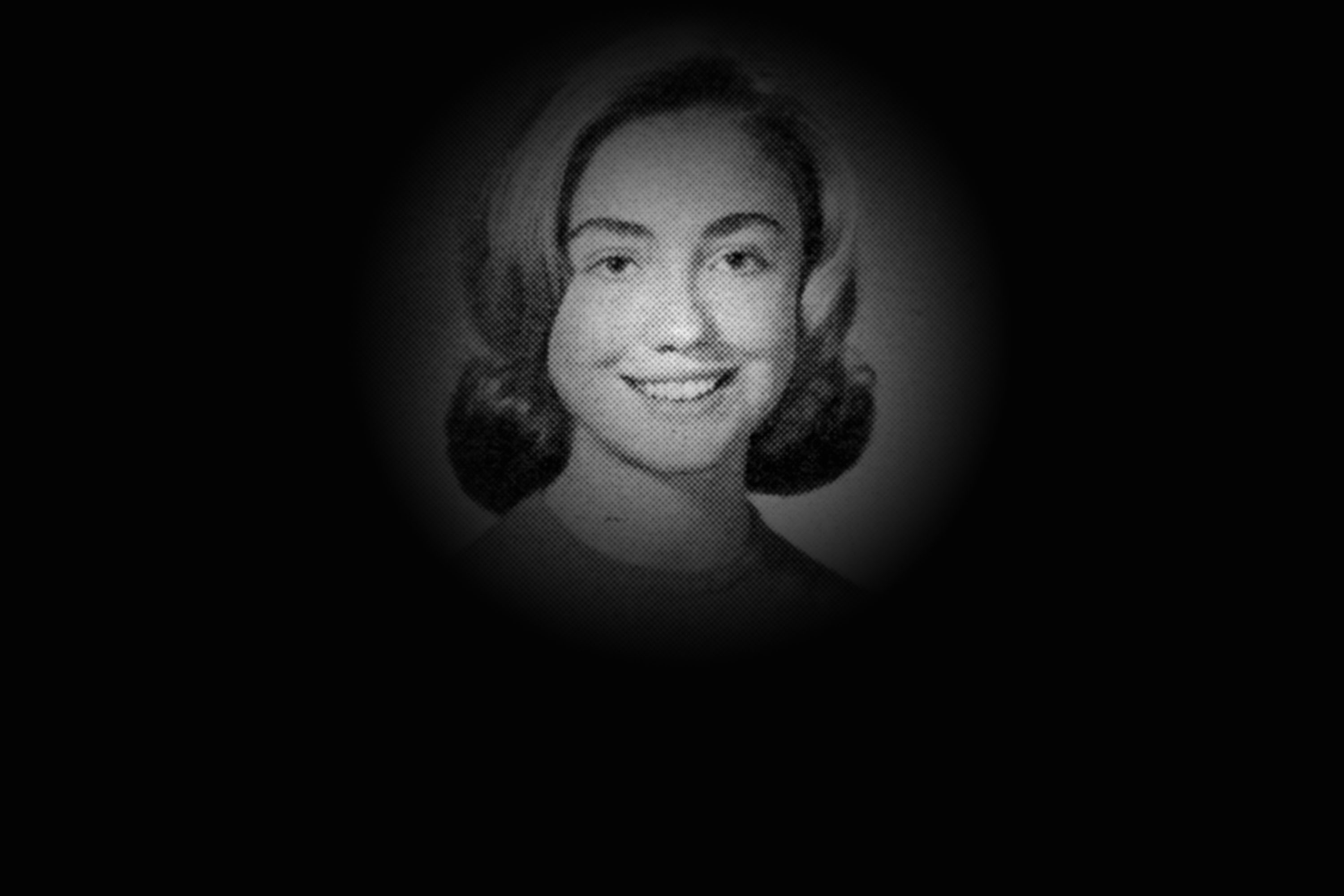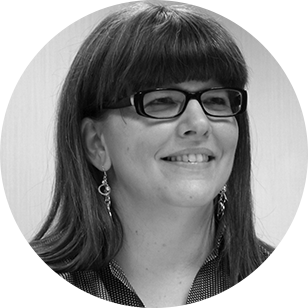The crushing sexism of young Hillary Clinton's America
This is what the country looked like when Hillary Clinton grew up


A free daily email with the biggest news stories of the day – and the best features from TheWeek.com
You are now subscribed
Your newsletter sign-up was successful
You may have noticed that Tuesday night was historic. Hillary Clinton's rise to the top of her party's ticket is a big deal. Like, a really big deal.
But as with all words endlessly repeated, "historic" is a little shop-worn. What does it mean exactly? Clinton has walked the Earth for nearly seven decades, and a lot has happened. What's the context of her historic first? We know what America looks like today — but what did it look like when she began her journey?
When Hillary Clinton graduated from high school in 1965, "Wooly Bully" was a chart-topper (and performed by Sam the Sham and The Pharaohs in faux-Middle Eastern costumes that, today, would burn the internet down. In black-and-white footage you can see here, two women stand entirely still among palm trees — their only movement an occasional eyeblink — serving as literal decoration). The Sound of Music had recently left theaters, and How To Stuff a Wild Bikini was on its way. President Kennedy was 19 months dead; Martin Luther King, Jr. was still alive.
The Week
Escape your echo chamber. Get the facts behind the news, plus analysis from multiple perspectives.

Sign up for The Week's Free Newsletters
From our morning news briefing to a weekly Good News Newsletter, get the best of The Week delivered directly to your inbox.
From our morning news briefing to a weekly Good News Newsletter, get the best of The Week delivered directly to your inbox.
1965 was also the year in which the Supreme Court first established a married couple's legal right to control their reproduction with birth control; single women weren't granted the same right until 1972. Roe v. Wade came down in 1973 — which means that Robert Downey, Jr., Ellen Degeneres, and Jennifer Lopez are all older than an American woman's constitutional right to abortion.
When Clinton enrolled at the all-women's Wellesley College, her gender would have barred her from entry at Harvard's library, 15 miles down the road (the rule was changed in 1967). When she moved on to Yale Law School, there were only 13,000 female lawyers in the entire U.S.; that number more than quintupled by 1980, but even then, women only made up 12.4 percent of the national total. (Women are still not equally represented in the legal professions, and perhaps needless to say, they also earn less than men.)
Until 1975, rapists who happened to be married to their victims feared no legal repercussions; on the other hand, until 1977, a woman could be legally fired from her job for being pregnant (or for merely having the potential to become pregnant).
We could go on and on:
A free daily email with the biggest news stories of the day – and the best features from TheWeek.com
- The first woman wasn't appointed to the Supreme Court until 1981, nearly two centuries after the Court was established;
- When Anita Hill came forward 10 years later and testified about a different Supreme Court nominee's long history of sexual harassment, Congress dismissed her out of hand;
- When Clinton ran for president in 2008, hecklers often called upon her to "iron my shirt."
That last might seem trivial, but it's not. Over the years that correspond to Clinton's adult life, the nation she may well come to lead has only barely begun to move forward from what amounts to all of human history, when women were not considered human enough to get a say in whether they ironed a shirt, went to the library, or got raped. This is the backdrop to Clinton's "long and tiring path," described by Paul Waldman. This is what we mean by "historic."
My favorite bit of historic context, however, is personal. I was born in Park Ridge, Illinois, where Clinton grew up, and not long after she finished high school (where she may or may not have encountered my father, Ted Hauser, a U.S. history teacher), my mother decided to buy a house. My dad had recently died, however, and for my mom the loss meant more than just grief. As a widow, she couldn't purchase a roof to put over our heads — because banks wouldn't give a single woman a loan. So my mother, a grown-ass adult with a college degree and three kids, had to ask her father to come to the bank and sign off on her mortgage. "A woman couldn't even have a credit card on her own," she recalls.
When Hillary Clinton was first becoming politically aware, American society still treated women as (at best) children. When she became the first female associate at Little Rock's Rose Law Firm, she could have been legally terminated if she became pregnant. And as she continues her historic run for the Oval Office, she must still grapple with the monumental misogyny that defines the party she's running against — and far too much sexism within her own.
History and context matter in all human endeavors; when you're first in anything, history often boils down to your greatest opponent. Here's hoping for another historic night in November — and a future in which my granddaughters look back on this campaign and marvel at just how backward we all once were.
Emily L. Hauser is a long-time commentary writer. Her work has appeared in a variety of outlets, including The Daily Beast, Haaretz, The Forward, Chicago Tribune, and The Dallas Morning News, where she has looked at a wide range of topics, from helmet laws to forgetfulness to the Israeli-Palestinian conflict.
-
 The Olympic timekeepers keeping the Games on track
The Olympic timekeepers keeping the Games on trackUnder the Radar Swiss watchmaking giant Omega has been at the finish line of every Olympic Games for nearly 100 years
-
 Will increasing tensions with Iran boil over into war?
Will increasing tensions with Iran boil over into war?Today’s Big Question President Donald Trump has recently been threatening the country
-
 Corruption: The spy sheikh and the president
Corruption: The spy sheikh and the presidentFeature Trump is at the center of another scandal
-
 The billionaires’ wealth tax: a catastrophe for California?
The billionaires’ wealth tax: a catastrophe for California?Talking Point Peter Thiel and Larry Page preparing to change state residency
-
 Bari Weiss’ ‘60 Minutes’ scandal is about more than one report
Bari Weiss’ ‘60 Minutes’ scandal is about more than one reportIN THE SPOTLIGHT By blocking an approved segment on a controversial prison holding US deportees in El Salvador, the editor-in-chief of CBS News has become the main story
-
 Has Zohran Mamdani shown the Democrats how to win again?
Has Zohran Mamdani shown the Democrats how to win again?Today’s Big Question New York City mayoral election touted as victory for left-wing populists but moderate centrist wins elsewhere present more complex path for Democratic Party
-
 Millions turn out for anti-Trump ‘No Kings’ rallies
Millions turn out for anti-Trump ‘No Kings’ ralliesSpeed Read An estimated 7 million people participated, 2 million more than at the first ‘No Kings’ protest in June
-
 Ghislaine Maxwell: angling for a Trump pardon
Ghislaine Maxwell: angling for a Trump pardonTalking Point Convicted sex trafficker's testimony could shed new light on president's links to Jeffrey Epstein
-
 The last words and final moments of 40 presidents
The last words and final moments of 40 presidentsThe Explainer Some are eloquent quotes worthy of the holders of the highest office in the nation, and others... aren't
-
 The JFK files: the truth at last?
The JFK files: the truth at last?In The Spotlight More than 64,000 previously classified documents relating the 1963 assassination of John F. Kennedy have been released by the Trump administration
-
 'Seriously, not literally': how should the world take Donald Trump?
'Seriously, not literally': how should the world take Donald Trump?Today's big question White House rhetoric and reality look likely to become increasingly blurred
